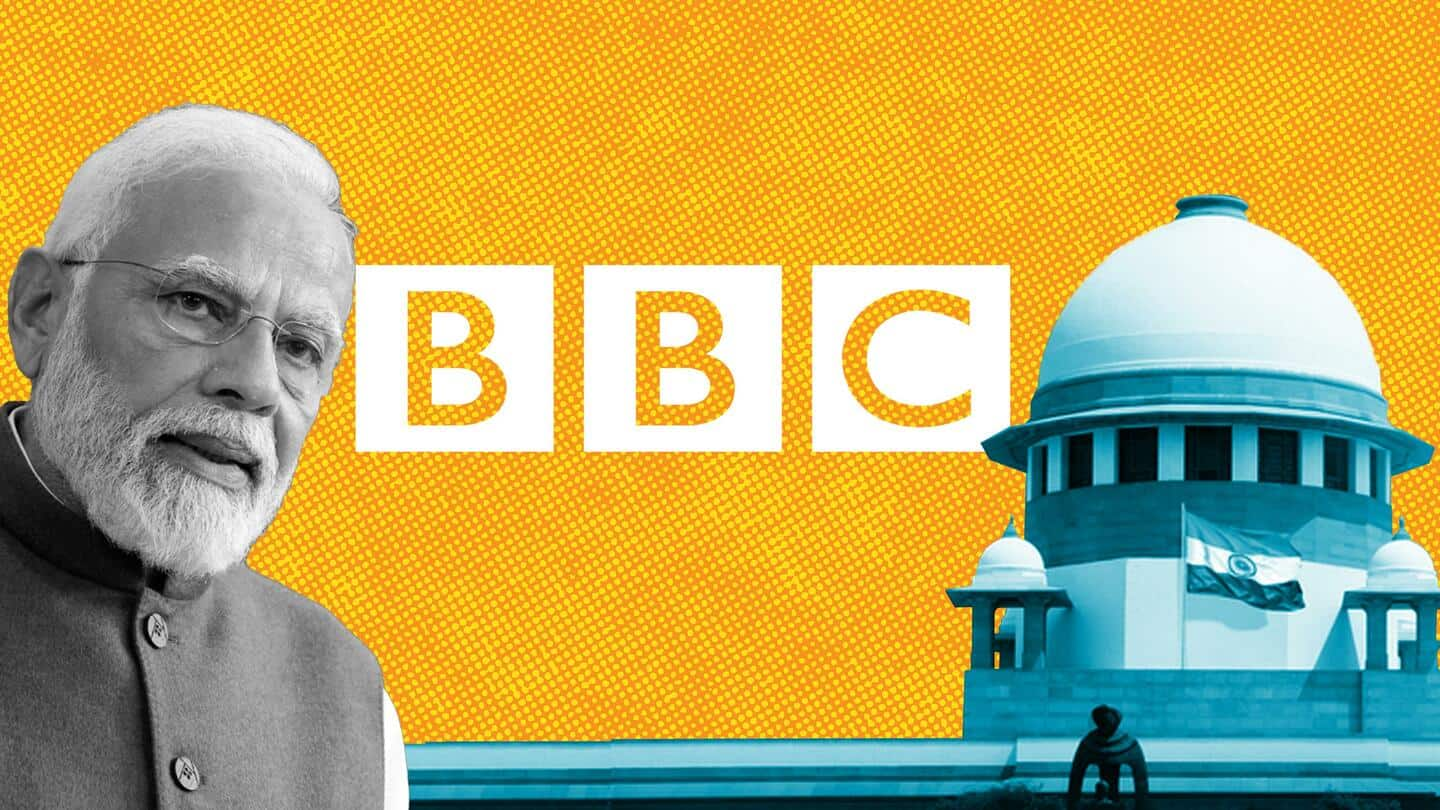
Modi documentary: SC to hear petitions challenging ban next week
What's the story
The Supreme Court on Monday agreed to hear petitions challenging the Centre's decision to ban the controversial BBC documentary on PM Narendra Modi, titled India: The Modi Question, which delves into the 2002 Gujarat riots on February 6.
Notably, one of the pleas argued that the ban order by the central government was "malafide, arbitrary, and unconstitutional" and must be lifted immediately.
Context
Why does this story matter?
Recently, BBC released the documentary India: The Modi Question, which reportedly investigates Modi's role as the Gujarat chief minister during the 2002 Gujarat riots, which killed more than 1,000 people.
Following its release, the Centre decided to ban the documentary and claimed it pushed a "discredited narrative."
Defying this ban, however, numerous opposition parties and student groups announced screenings of the documentary across India.
Supreme Court
SC to hear pleas against ban on February 6
A Supreme Court bench comprising Chief Justice DY Chandrachud and justices PS Narasimha and JB Pardiwala took note of the pleas filed by the advocate ML Sharma and senior advocate CU Singh on Monday.
The petitioners sought an urgent listing of their separate petitions on the issue.
The bench agreed to hear the pleas on February 6 against the ban on the BBC documentary.
Details
What do we know about the pleas?
One of the pleas was filed by Sharma, while the other was reportedly filed on behalf of senior journalist N Ram, activist-lawyer Prashant Bhushan, and Trinamool Congress MP Mahua Moitra.
Sharma urged the SC to examine the two-part BBC documentary series and also demanded action against the individuals who were responsible for the 2002 Gujarat riots, including those who were involved directly and indirectly.
Proceedings
Government yet to publicize order banning documentary: Counsel
On behalf of petitioners, Singh told the SC that the Centre had not officially made the orders banning the contentious BBC documentary public.
He also questioned the Centre's use of emergency powers under the IT Rules to take down the documentary links from social media, adding tweets by his clients were also removed.
Singh also mentioned students who screened the documentary were being rusticated.
Arguments
'Can central government use emergency powers,' petitioner questions
Meanwhile, petitioner Sharma stated that the Supreme Court must decide if people have the right to access news, facts, and reports on the 2002 Gujarat riots under Article 19(1)(a).
Sharma's plea also questioned, "Whether without having an Emergency declared under Article 352 of the Constitution of India by the President, Emergency provisions can be invoked by the Central Government? (sic)"
Ban
MIB banned documentary on Modi, MEA called it propaganda piece
The Ministry of Information and Broadcasting (MIB) banned the BBC documentary in India on January 21.
Earlier, the Ministry of External Affairs (MEA) also called it "completely biased."
MEA spokesperson Arindam Bagchi, during a presser in New Delhi, earlier stated, "We think this is a propaganda piece. This has no objectivity. This is biased. Do note that this hasn't been screened in India."
Tension
Top universities witness high-drama amid documentary row
Despite a ban on it, many political and student groups across India screened the BBC documentary in recent days. Some students were also held over the same.
Top universities in India, including Delhi's Jamia Milia Islamia University, Jawaharlal Nehru University (JNU), and Kolkata's Presidency University, reported high drama during the screenings of the documentary.
These screenings were mostly organized by left-wing student groups.